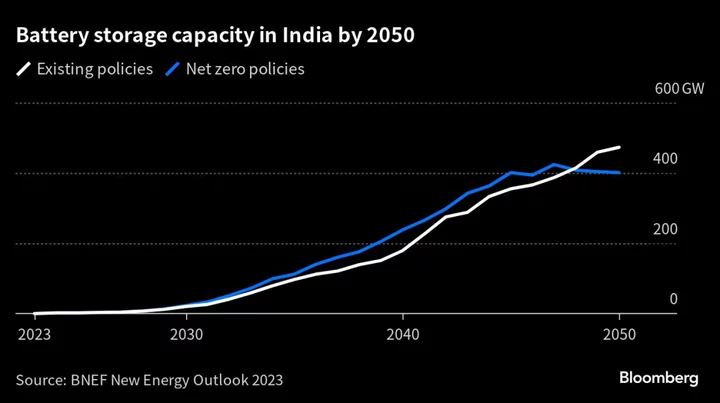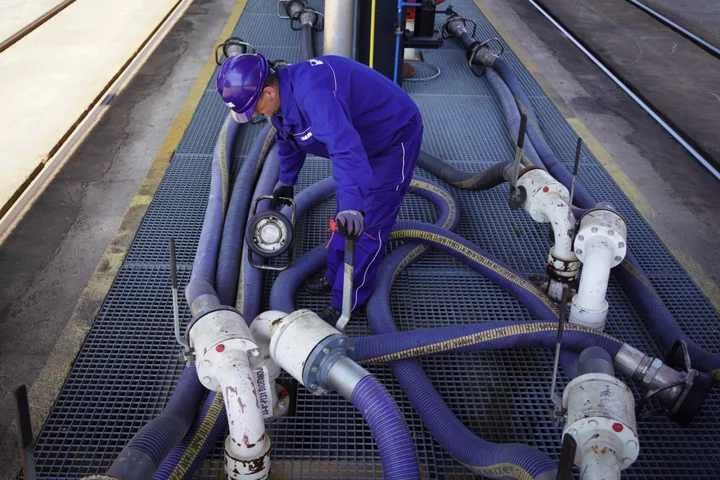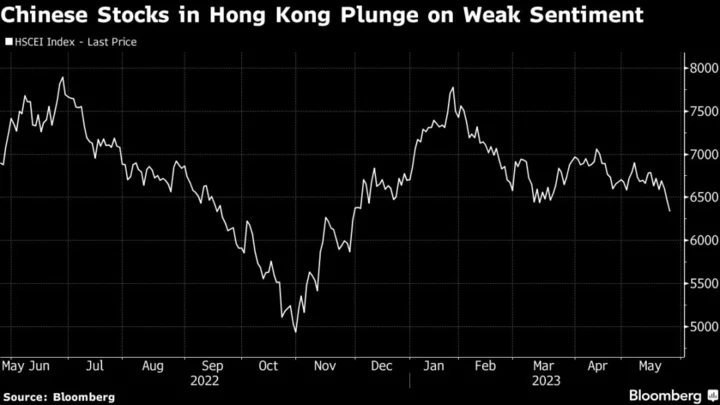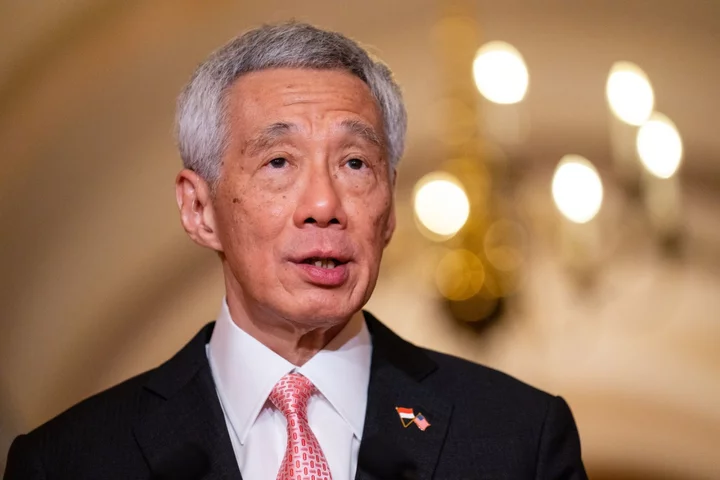Sign up for the India Edition newsletter by Menaka Doshi – an insider's guide to the emerging economic powerhouse, and the billionaires and businesses behind its rise, delivered weekly.
India’s support for energy storage is essential to enable the renewables growth Prime Minister Narendra Modi has promised, but more incentives may be needed, according to the head of California-based Energy Vault Holdings Inc.
The promising renewables market in India could be stifled by the high cost of power storage, which will become an essential component of the transition away from fossil fuels, Robert Piconi, chief executive officer of the company, said in a interview.
In this period of transition “there’s a lot of opportunity for the government to get a little more involved there and provide those incentives,” he said, adding that what’s available at the moment is “very little.”
Renewable electricity available at any time of the day and night “is sort of a holy grail,” Piconi said. “It’s not achievable with the current technologies, because they are not economical.”
Piconi is traveling in India to talk with potential partners, including coal giant NTPC Ltd. and clean energy company ReNew Energy Global Plc. He said details of the partnership with NTPC will be disclosed later this year.
India’s potential for large-scale deployment means renewable power can be built on the cheap, and storage will be essential to support this expansion, Piconi said. But given the country’s price-conscious market, adding enough battery capacity to displace coal and meet evening demand peaks with clean energy is a tall order, he said.
India will soon accept bids for the construction of a 100 megawatt round-the-clock clean energy system, backed by storage, but until the technology’s price drops, new coal plants will continue to be planned in order to meet the needs of a growing economy, Power Minister Raj Kumar Singh said earlier this month.
The government has a plan to offer a total of $2.5 billion in subsidies to large scale battery makers, Singh said last year, although a firm proposal has yet to come. The government has rolled out $2.3 billion of production-linked-incentives for electric vehicle batteries, benefiting companies such as Reliance Industries Ltd., Ola Electric Mobility Pvt. and Rajesh Exports Ltd.
Richer economies are deploying more aggressive subsidies to kick-start the energy storage market. In 2017, the European Union launched the European Battery Alliance, which so far has attracted about €100 billion ($105 billion) in investment commitments. This year, the US issued a $9.2 billion conditional loan to Ford Motor Co. to build three battery factories.
A scenario for India in which the growth of energy storage is non-negotiable, but comes at a stiff price, “is going to force a lot of innovation to try to deal with the cost issue,” Piconi said. Since research and development are inherently expensive, “subsidies would definitely help,” he added. “In some cases it keeps some companies going that otherwise wouldn’t make it.”
Energy Vault is marketing its proprietary gravitation technology, where heavy blocks are lifted with the help of electric motors and become storehouses of potential energy, which can then be converted into electrical power when they’re lowered to the ground.
(Changes wording in first paragraph and adds CEO quote in third paragraph.)









